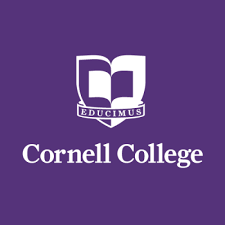Juniors – here are the upcoming SAT Testing Dates (Go to sat.org)
- March 10 – Late registration was due Feb. 28
- May 5 – Register by April 6
Subject Tests Offered: Literature, U.S. History, World History, Math Level 1, Math Level 2, Biology E/M, Chemistry, Physics, French, and Spanish - June 2 TEST – Register by May 3
Subject Tests Offered: Literature, U.S. History, World History, Math Level 1, Math Level 2, Biology E/M, Chemistry, Physics, French, Spanish, German, Modern Hebrew, Italian, and Latin
ACT Testing Dates (Go to act.org)
- April 14 – Register by March 9
- June 9 – Register by May 4
Which Exam Should I Choose?
Answer: Take one of each to see which one you score better on!
Differences Between ACT and SAT
ACT
- ACT (American College Testing Program)
- Most popular among high school students.
- Known as achievement test so should test on what students are learning in high school
- 215 multiple choice questions / 3 hours and 30 minutes long
- Tests on 4 sections: English, Reading, Mathematics, and Science. Optional Writing Test
- Scores are in better detail; the subscores provide more detail on areas where the student excels or struggles.
- Reading Section: Questions are more straightforward but have less time to complete
SAT
- Scholastic Achievement Test owned by the College Board
- Designed to predict freshman grades in college
- Tests: Reading, Writing and Math
- New SAT is more detailed and holistic than in the past
- SAT scoring is more comprehensive
- Essay is optional
- SAT offers 20 subject tests that students can take up to 3 subject tests per testing date. Subject tests are optional but might be required by selective colleges for admission
- Test involves more critical thinking
- Reading Section: Questions are more complex but get more time to answer each question.
Difference between ACT and SAT https://blog.prepscholar.com/act-vs-sat
College of the Week
Each week, SCVi will provide insight into unique college options for students & families. Our sources include The Fiske Guide to Colleges 2018; Colleges That Change Lives by Lauren Pope; and Colleges That Create Futures by the Princeton Review.

(Fiske Guide)
Click here for Admissions Info
Click here for Tuition & Financial Aid Info
Enrollment: 1,033
Acceptance Rate: 71%
DETAILS: Cornell College attracts the type of student who seeks an intense yet flexible, self-designed program and a liberal, progressive atmosphere in which to solidify strict habits and routines. It suits those who aren’t satisfied with easy answers, don’t mind heading to the rural Midwest, and do want loads of personal attention while focusing on one class. “If you want a normal college experience, don’t pick Cornell,” warns one student, but “if you want to pour yourself into a class for three and a half straight weeks and feel exhausted but accomplished,” Cornell may be just the right fit.
CC Student Perspective: “‘Cornell weird’ is a phrase that gets thrown around a lot and it’s accurate. With the block plan and a variety of interests to offer to students, there is no singular way to describe a Cornellian other than unique.”
Kris Nilsen
Academic/College/Career Advisor
Click Here to make an appointment!